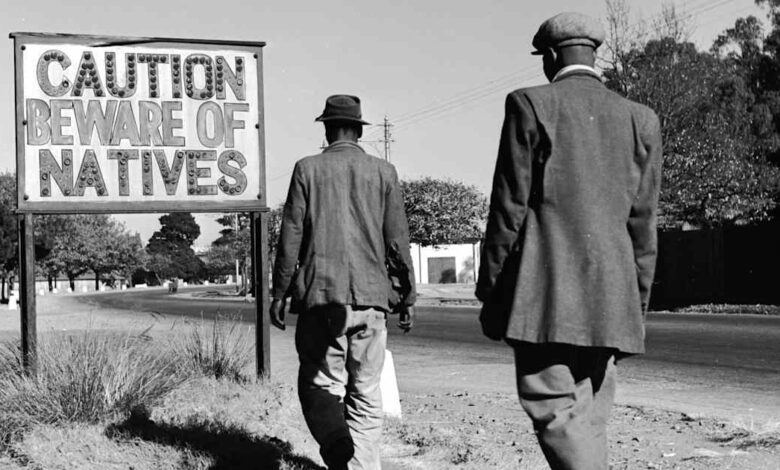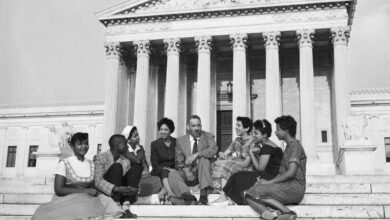The Harsh Reality of Life Under Apartheid in South Africa

In 1960, South African police killed 69 peaceful protesters in Sharpeville, sparking nationwide dissent and a wave of strikes. A subgroup of protesters who were tired of what they saw as ineffective nonviolent protests began to embrace armed resistance instead. Among them was Nelson Mandela, who helped organize a paramilitary subgroup of the ANC in 1960. He was arrested for treason in 1961 and was sentenced to life in prison for charges of sabotage in 1964.
In response to the 1960 protests, the government declared a state of emergency. This tactic cleared the way for even more apartheid laws to be put in place. Despite the state of emergency, Black groups continued to organize and protest. But a crackdown on many movement leaders forced them into exile abroad.
Anti-apartheid protests continued as life for Black South Africans became more and more dire under apartheid. On June 16, 1976, up to 10,000 Black schoolchildren, inspired by new tenets of Black consciousness, marched to protest a new law that forced them to learn Afrikaans in schools. Steve Biko, anti-apartheid activist and co-founder of the South African Students’ Organization, spearheaded the movement and was arrested multiple times for his activism before dying from injuries sustained while in police custody on September 12, 1977.
When Did Apartheid End?
During the 1980s, resistance became even more fierce. Peaceful and violent protests finally began to spark international attention. Nelson Mandela, the movement’s most powerful and well-known representative, had been imprisoned since 1964. But he inspired his followers to continue resisting and conducted secret negotiations to end apartheid.
By the end of the 1980s, discontentment was growing among white South Africans about what they saw as South Africa’s diminished international standing. By then, the country faced sanctions and economic ramifications as international businesses, celebrities, and other governments pressured the government to end discrimination. As the economy faltered, the government was locked in a stalemate with anti-apartheid activists.
But when South African president P.W. Botha resigned in 1989, the stalemate finally broke. Botha’s successor, F.W. de Klerk, decided it was time to negotiate to end apartheid in earnest.
Source link




